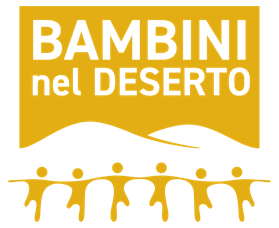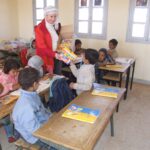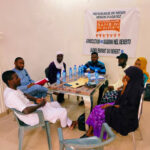Schooling is one of the fundamental pillars for the development of a society. However, in many African countries, access to education for children remains a complex challenge. Bambini nel Deserto works daily to improve the living conditions of millions of children in Africa, addressing the difficulties related to access to education and promoting change.
Africa is home to over 1.2 billion people, of whom about 60% are under the age of 25. However, millions of children and youth are out of school. UNESCO estimates that over 100 million school-age children do not receive formal education.
The challenges these children face vary from country to country, but include:
- Poverty: Families often cannot afford to pay for school fees, materials, or transportation for their children.
- Conflict and political instability: In many regions affected by civil wars or internal conflicts (for example, the Sahel and the Horn of Africa), schools are destroyed or closed, making access to education impossible.
- Gender discrimination: Girls face particular barriers, including early marriage, teenage pregnancy and the pressure to do household chores rather than study.
- Inadequate infrastructure: Many schools lack basic resources such as safe classrooms, textbooks and qualified teachers.
The lack of access to education has devastating effects on the future prospects of African children:
- Cycle of poverty: Without a basic education, children have few opportunities to find work and remain trapped in poverty, replicating this cycle with future generations.
- Gender disparity: Girls’ lack of education contributes to the persistence of gender stereotypes and inequalities.
- Vulnerability to violence: Children who are out of school are more at risk of exploitation, trafficking and recruitment by armed groups.
At Bambini nel Deserto we work in countries such as Burkina Faso, Mali, Senegal and Niger to improve access to education through:
- Building schools: We work with local communities to build safe, well-equipped schools that provide a stimulating environment for learning.
- Teacher support: We train teachers and provide teaching materials to ensure children receive a quality education.
- Girls’ education programs: We encourage families to send their daughters to school through scholarships and gender awareness programs.
- Digital education projects: In an era where technology is transforming education, we promote the use of electronic devices to improve access to educational resources.
The right to education should never be denied, yet for millions of children in Africa it is still a distant dream.
With the right commitment, we can hope to see progress towards inclusive and quality education across Africa. 2024 will be an important year in this regard, having been declared the “Year of Education” by the African Union, with the support of UNESCO to strengthen education policies at the continental level.
We realize that there is still much to be done, but every step forward helps build a brighter future for African children.


